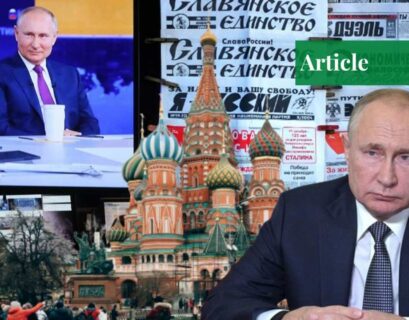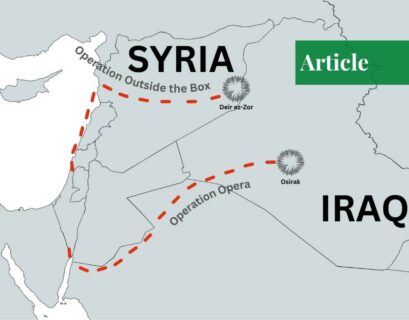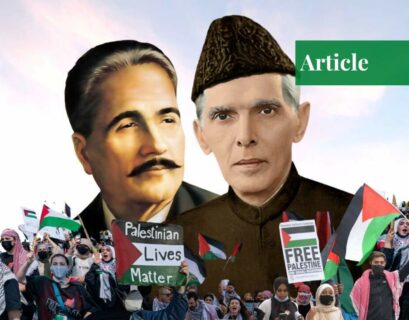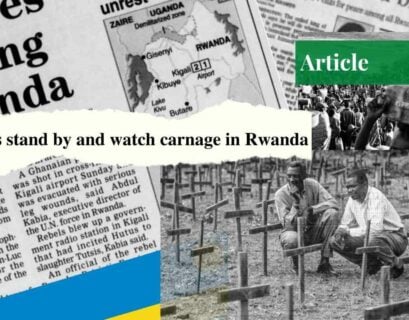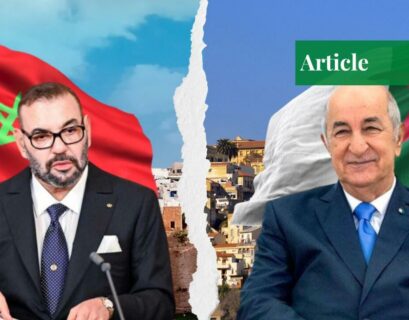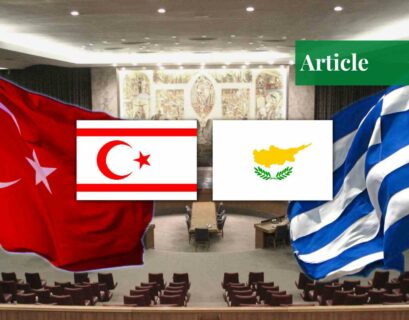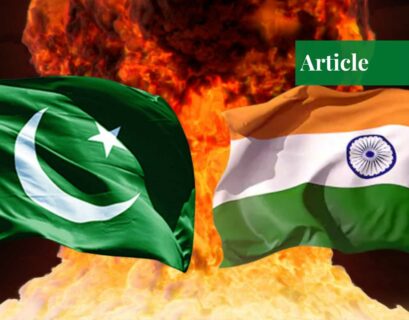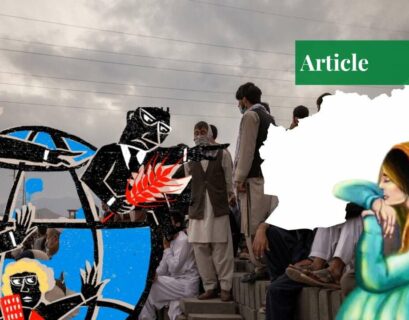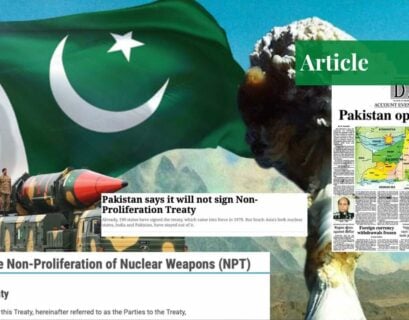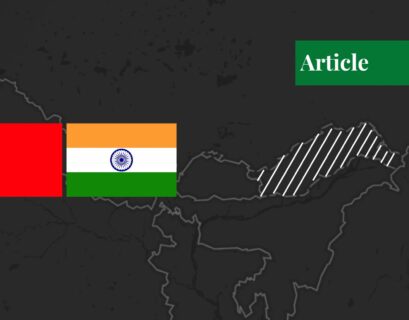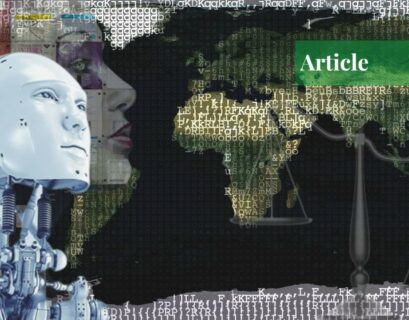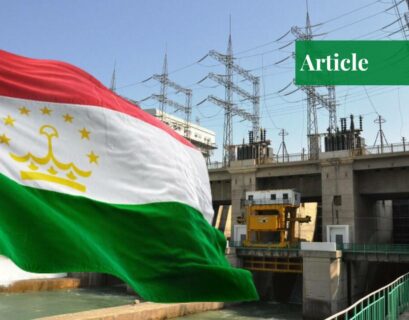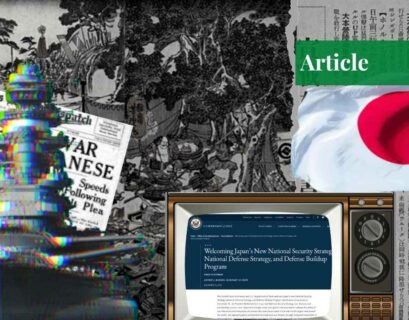Russian Influence Operations: Disinformation Campaigns
Hybrid warfare is a term worn out in academia, being overused in every situation where there is a complexity or overlap of tactics. One incredibly invasive hybrid tactic that is being utilized all around the globe is disinformation through narrative building.
Hafsa Ammar discusses how disinformation has allegedly been used extensively by Russia against its enemies, particularly against the US.
French Troops Withdraw From Mali and Burkina Faso
France’s decision to pull out its troops from Mali and Burkina Faso has created a security vacuum, and since both countries are known for the high rates of jihadist violence, concerns are growing about the impact that the withdrawal may have on regional security.
Adam Abass seeks to understand the reason why the security partnership between France and these two countries is deteriorating.
Israel’s Begin Doctrine
The Israeli government, led by Prime Minister Menachem Begin, believed that the acquisition of nuclear weapons by Iraq would pose an existential threat to the Jewish state.
That was the beginning of the Begin Doctrine which called for military action against countries or groups that carry out terrorist attacks against Israeli citizens or interests.
The Begin Doctrine has also been used to justify Israel’s military operations in the Middle East, including the bombing of the Osirak nuclear reactor in Iraq in 1981 and the attack on the Syrian nuclear facility in 2007.
Economic Diplomacy & Its Growing Relevance
For centuries, diplomacy is a term often associated with high politics; an important instrument of foreign policy, a tool to mitigate traditional security issues, and a means to ensure peaceful bilateral relations. However, in a world where the concept of security is widening and deepening, the scope of diplomacy has also enlarged to encompass many tools, types, problem areas, and actors.
In the contemporary multi-polar world order characterized by globalization, digital revolution, and newly emerging economies, it has become indispensable to recognise economic diplomacy as a paramount instrument of foreign policy. Duaa Ayaz sheds light on economic diplomacy as a concept and its evolution, its growing significance in the 21st-century liberal order, its manifestations in light of case studies, the challenges facing it, and its future.
Quaid-e-Azam, Allama Iqbal, and Pakistan’s Historical Opposition to Israel
There is a belief that Pakistan is solely opposed to Israel due to the latter’s post-independence atrocities against Palestine, but this is not the complete picture.
Pakistan’s opposition to Israel can be traced back to the founding fathers like Muhammad Ali Jinnah and Allama Muhammad Iqbal who, through their speeches and policies, laid the groundwork for the nation’s pro-Palestine stance long before Pakistan or Israel came into existence.
The Complexities of Humanitarian Intervention
Humanitarian intervention can be used as an instrument to manage the armed aspect of the conflict and lower the suffering of people by curbing violence. However, it is not as simple as it seems.
In international politics, a number of factors are involved for states to take action. Iman Faisal tries to shed light on the certain complexities of humanitarian intervention by taking the example of humanitarian intervention during the Rwandan Genocide.
The Role of Modernism in Shaping Nationalism
Hafsa Ammar observes the role of modernism in international relations i.e. the rise of nationalism and identity politics.
Where primordialism holds that nationalism has existed as a universal and independent concept, modernism maintains that the development of the international system is what induced nationalism.
President Mohamud’s War Against Al-Shabaab
In May 2022, when President Sheikh Mohamud was elected president of Somalia amidst the political turmoil, one of his top priorities was the elimination of Al-Shabaab, an Islamist group that has been waging war against the country.
Adam Abass analyses the president’s strategy against Al-Shabaab, the current military offensive being launched by his government, Al-Shabaab’s counter-strategy, and the possible challenges ahead that can thwart the progress being made against the group.
What Caused Algeria and Morocco to Cut Ties?
On 24th August 2021, Algeria cut diplomatic ties with Morocco, citing Morocco’s recognition of Israel and its support of the Kabyle separatist movement as the two main reasons.
In this piece, follow the real story behind why two of North Africa’s biggest powers severed their diplomatic ties, and the events that led to this rift.
Turkey, Greece and the Cyprus Dispute
Hafsa Ammar discusses how international mediation sometimes is necessary to maintain world order and peace.
She builds on this case by recalling the Cyprus dispute. The mediation attempts by the US and the United Nations managed to subdue Turkey and Greece, and this effectively prevented the conflict from escalating.
Assessing Nuclear Security in Pakistan & India
In South Asia, Pakistan has been subjected to growing criticism over the insecurity posed by its nuclear infrastructure. However, what’s commonly ignored is that the region houses another nuclear state—one that presents greater and deadly nuclear concerns.
The Plight of Afghan Women Under the Taliban
With Afghanistan having already become the victim of immense sanctions imposed upon it by the West, the Taliban’s recent ban on women’s education will only continue to disrupt the lives of the people of Afghanistan. Myra Imran Rafiq recommends intervention and engagement by international actors to minimize the cost of human suffering.
Why Pakistan Refuses to Sign the NPT
Of the nine nuclear-weapon states, only the P5 states have consented to be bound by the Non-Proliferation Treaty or the NPT. Pakistan, India, North Korea, and Israel are not parties to the treaty.
In this piece, Hurria Binte Abdullah describes the three major reasons behind Pakistan’s resistance to the treaty.
The first reason is mistrust and disappointment with the US as a strategic and security ally, the second is India’s non-acceptance of the NPT, and the third is the fact that there are inherent loopholes within the NPT itself that raise concerns about future commitments and effectiveness of the treaty.
Exploring the India-China Border Dispute in Arunachal Pradesh
The absence of clear demarcations in the Arunachal Pradesh region has led to multiple conflicts between China and India. Tawang, the reason for the recent skirmish, is claimed by both India and China. Leveraging the tactical and cultural importance of the Tawang region in Arunachal Pradesh will undeniably provide a strategic advantage to either of the two nations.
Tajikistan’s Geoeconomic Significance: Unfolding New Dimensions
According to certain economic assessments, Tajikistan has had consistent development since the end of the Tajik civil war in 1992, as well as an overall rise in the standard of living and foreign investment.
To Maha Afzal Chaudhary, the country’s great hydroelectric potential and geostrategic significance make it a prominent player in regional affairs.
Japan Approves Its Revolutionary National Security Strategy
Japan has unveiled an updated version of its National Security Strategy to ramp up the counterstrike capabilities of the self-defense force. The strategy consists of three documents: the National Security Strategy (NSS), the National Defense Strategy (NDS), and the Defense Buildup Program (DBP). Sajid Khan believes that the vital changes in Japan’s strategy have occurred because of the threats from China, North Korea, and Russia.
